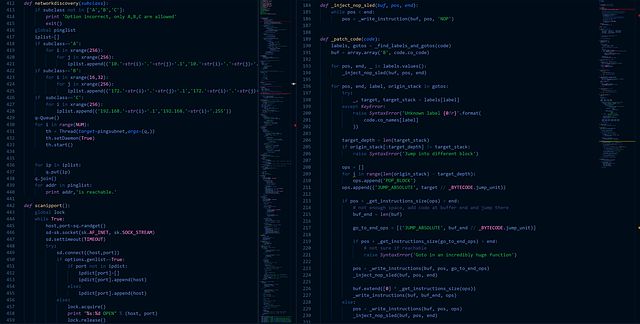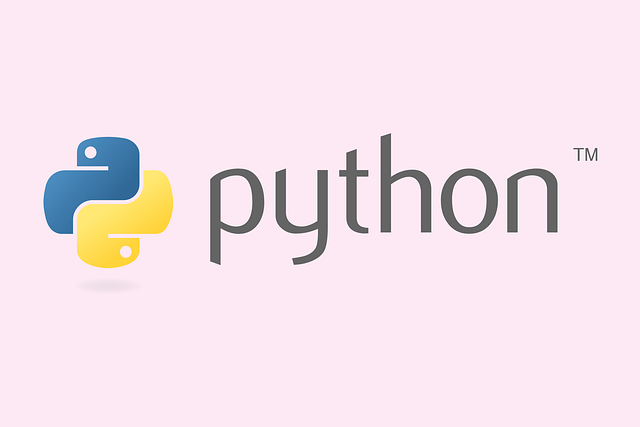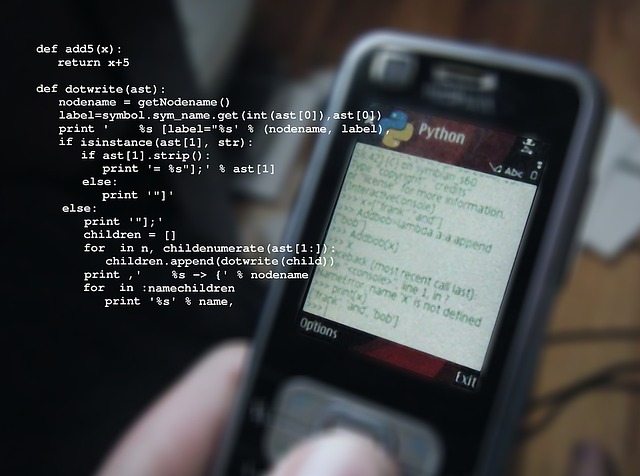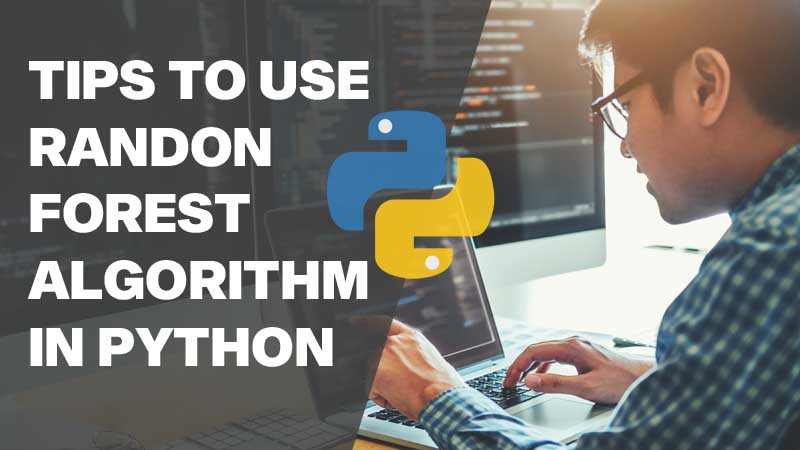Table of Contents
Github and Stack overflow has reported Python to be the second most popular language in the world. In this article, we provide deep insights on how to learn python. This can be a promising experience for both beginners and experts.
The frequently asked question is how much time will it require to learn Python? Starting from fundamentals to building advanced applications, the timeframe depends on the person’s learning schedule. The more time you invest to learn Python, the more quantifiable results you will get. Building application projects require delving deeper into the language libraries.
International organizations like Google, Quora, IBM, and Accenture rely heavily on Python to meet business and customer needs.
Python has recently gained its fame from applications in data science, machine learning, deep learning, web development, API development, and system automation.
Python is a scripting and automation language. These functionalities are just the tip of the iceberg. Python has been credited for benefiting both beginners and experts. This language is straightforward and has high readability feautures. It leaves the developer with more time to focus on problem-solving rather than implementation.
What is Python?
Python is a high-level and object-oriented language. It is an interpreted language which means the code is executed line-by-line. This language does not have a compilation step. This leads to faster debugging. Its easy-to-learn syntax is responsible for the development of applications across multiple domains.
The syntax in python is fairly simple. Concepts in this language are intuitive and easy to grasp. This makes the learning curve less steep. Python provides a streamlined programming experience.
What is Python Process?
Python is an open-source language. Plenty of resources are available across the internet to learn python and its applications.
Before starting the installation, one must decide about the version. The latest version 3.9.2 has the newest features. On the other hand, the older versions are more stable and have extensive libraries.
Python is available for operating systems like Windows, Linus, Mac, etc. the best way to install python is the python source itself.
Next, you have to select the text editor. There are a wide plethora of choices available. If you are focused on large-scale project applications, then you have to choose a text editor compatible with them. IDE (integrated development environment) is a powerful choice among text editors. Though they consume more memory, IDE makes writing, compilation, and debugging easy.
One drawback is python is not a favorable choice when speed is an absolute necessity. C++/C or other languages make a better choice in this scenario.
How long does it take to learn Python?
The amount of time it takes to learn a language is highly subjective. You can cover all the python basics like if-else statements, lists, dictionaries, loops, functions, classes in 6-8 weeks.
The learning schedule is totally dependent on the person’s schedule and background. If you are new to the programming domain, it will take you longer to grasp the basics. On the other hand, developers can cover basics within 3-4 weeks’ worth of time.
How long does it take to learn Python from scratch?
Python is a feature-enriched programming language. The simplicity and elegance of Python have made it high in demand.
It will take roughly 6- weeks to learn the python language from scratch. The syntax is highly user-friendly. There are many online courses and free resources available on YouTube.
Famous courses are available on Udemy, Codecademy, Udacity, Plural sight, Eduonix, edx, Data quest. You can find free online content on YouTube. If you have other responsibilities alongside learning Python then the best choice is to join a boot camp. You will have classes and assignments. There will be weekly submissions so you can follow along.
If you have less time at your disposal i.e. 2-3 hours in one day, then learning python can take up to 5-6 months from scratch. Teaming up with a friend or partner can give a definite boost to your learning trajectory.
Along with learning concepts, practicing programs is equally important. Leet code and Hacker rank are famous for providing programming problems. They have ranked each problem based on the difficulty level like easy, intermediate, and expert. In this way, you can track your performance efficiently systematically.
Like any other project, learning a language demands dedication and consistency. With honesty and perseverance, you can show a drastic performance improvement.
How long does it take to master Python?
There are three levels to learning python:
- Basic (Elementary) Python
- Advanced (Expert-level) Python
- Professional Python
First, you have to choose a resource. It could be interactive or non-interactive. If you are a beginner and have no or little programming background then it will take you roughly 8 weeks to completely understand the syntax. It includes understanding data types, conditionals, loops, functions, classes.
Advanced level programming includes concepts like libraries and packages involved in domains like data analytics, image processing, multi threading, socket programming. Various online courses are available which provide step-by-step guide to learn these technologies. A big benefit is guided and properly curated assignments and projects. After learning basics, going to the advanced level can take minimum 2 months.
Professional level python is going to take 5 months. You need a proper plan to learn and execute projects that are in high market demand. You can choose the order at your own will by learning one day and implementing it on next day. Or you can choose to simultaneously work on both aspects.
If you invest time and effort into the learning process, the prospects of you learning faster a higher.
Learning goals
There are a few prominent goals for learning python. It could be related to both professional as well as personal work. Establishing a goal with your study plan is an effective method to learning.
Automation of tasks
Python imparts programmers with the ability to process huge datasets. It makes handling massive datasets easy. Scraping hundreds of websites and API access is among other applications. This saves time and effort on the developer’s part. This is one of the most applauded benefits of the python language.
New career orientations
Learning python and its applications can open doors for the latest career opportunities. The annual salaries of Data analysts and data Scientists are exceptionally good. Modern hiring practices that include remote work can lead to a rewarding career with python.
Competitions
You can access your learning by participating in Python competitions. One of the most famous platforms is Kaggle. You can participate in the form of teams. It will add to your portfolio projects. Competition badges are widely applauded. Competing on a platform also enables you networking opportunities.
Is learning python worth it in 2021?

Python developers are in significant demand in 2021 across multiple niches. Especially with the rise of the data science industry python developers are in escalated demand. Its applications to machine learning, computer vision, deep learning, and natural language processing have made it a favorable and in-demand language.
Hundreds of libraries are constantly evolving in python. This makes designing and developing applications easy. This has reduced the learning curve from years to a few months.
Why is python in such high demand?
Easy scalability and efficient code writing make python a high-demand language. Budding development in machine learning applications has contributed to the popularity of Python.
Beginners in programmers are usually discouraged by the complex nuances of the programming language syntax. Python unlike other compiled languages is great for beginners. It takes less hassle to learn and instantaneous feedback makes the learning experience more enjoyable.
Python has a rich ecosystem of packages. API like PySpark which renders handling gigantic datasets easily has plummeted Python’s demand. Keras and Tensor flow have made computer vision and natural language processing applications faster and efficient. Artificial intelligence researchers are widely using Python for robust research implementations.
Python’s success lies in its versatility. Python has been used in famous projects like BATS. This is a project of maps for visually impaired people. NASA has used python in their workflow automation systems. Netflix uses it in its content delivery networks and monitoring systems.
According to the statistics of Payscale.com Python developers are among the highest-paid developers around the globe.
Another reason for its popularity is the wide resources of repositories available on Github. Python community is the second largest in Github.
Can I learn Python on my own?
Yes, it is possible to learn Python on your own. The learning resources from the internet are quite handy. You can find the development of simple projects to gaming and robotics tutorials.
Learning Python on your own will demand discipline. You will have to stick to a proper timetable with clearly defined milestones. For this, you can follow the schedule of any famous python teaching course. In this way, you can set realistic milestones.
One frequently asked question is do I have to be a mathematics pro to learn python? The answer to this is ‘No’. There is no authenticity to this claim. Python is a straightforward language. Do not let your non-technical background stop you from learning Python.
A firm determination and discipline can take you a long way. Wish you good luck with learning Python.




